How to Make Obedient Plant Behave in Your Flower Garden
Updated: Sep. 28, 2022
Pollinators love obedient plant, but it can be aggressive. See if these perennials are right for your garden and learn to care for them.
Our editors and experts handpick every product we feature. We may earn a commission from your purchases.
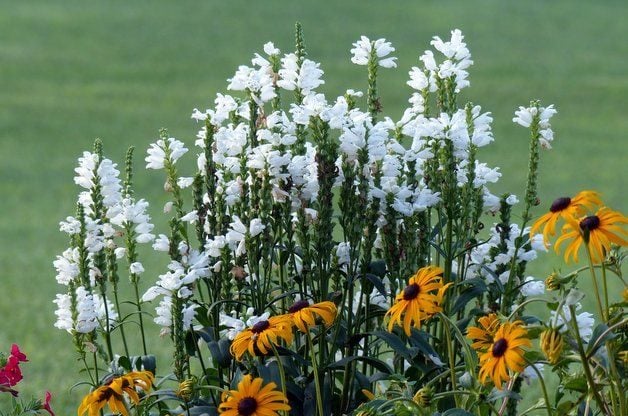
While admiring the flowers in my mother’s yard during a trip to Ohio earlier this summer, I came upon this obedient plant (Physostegia virginiana) that I purchased for her a few years ago. It’s done very well since we planted it, blooming each summer from June to September and attracting plenty of wildlife.
Obedient plant is native to the Eastern U.S. and Canada and is a good choice for cutting gardens. The wild varieties have pink-tinted blooms, but cultivars have been created that have darker pink and stark white flowers, along with a more compact growing arrangement. These perennials can spread aggressively. Here’s what you need to know before you add them to your yard.
Obedient Plant Care
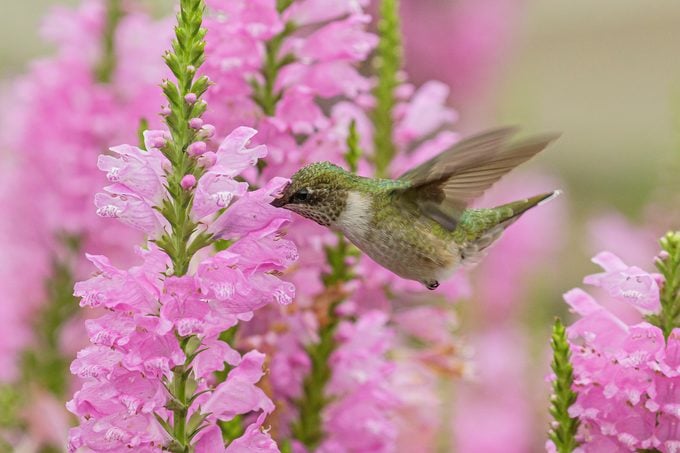
- Common name: Obedient plant or false dragonhead
- Scientific name: Physostegia virginiana
- Growing zones: 3 to 9
- Soil: Average to moist soils
- Light: Full sun to partial sun
- Attracts: Bees, butterflies and hummingbirds
Obedient plant will tolerate a variety of soil types, but likes to stay fairly moist. In certain environments, it can spread somewhat aggressively. But it’s a shallow-rooted plant that’s easy to remove if it shows up where it’s not wanted. Hummingbirds and pollinators like bees like to visit this plant, which is suitable for growing in zones 3 to 9. Add it to your wildflower meadow or native flower garden for long-lasting summer blooms.
Check out more long-blooming flowers for attracting butterflies.
Ask the Experts
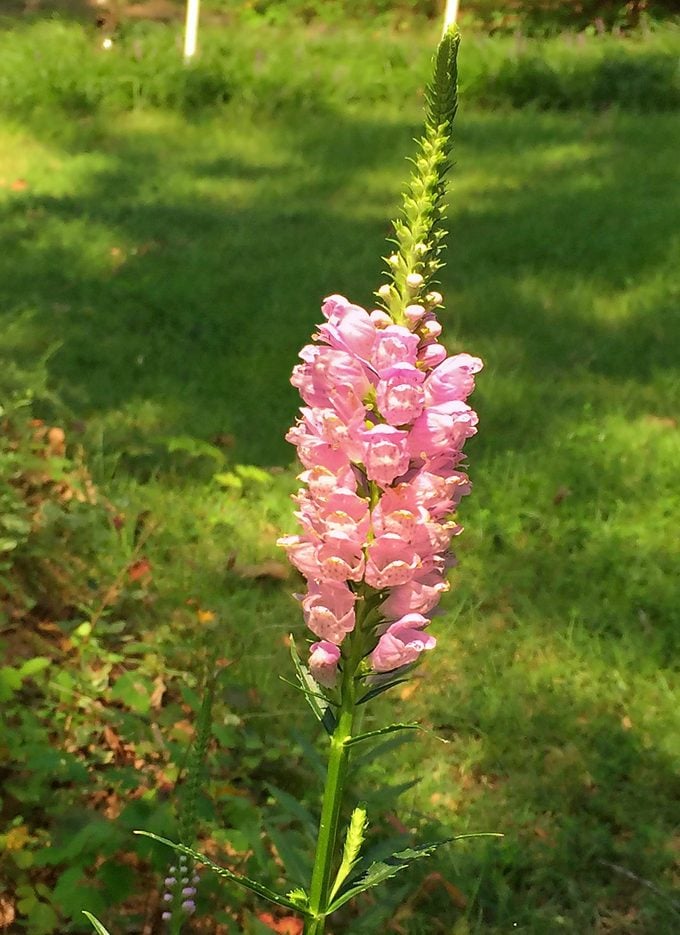
“I’d like to grow more of this obedient plant. How can I get it to spread?” asks Birds & Blooms reader Susan Hockett of Urbanna, Virginia.
Garden expert Melinda Myers: You don’t need to worry about having enough to fill your garden! This aggressive native beauty is known as obedient plant (Physostegia). However, its spread is rather disobedient, so place it where you can easily control its growth and regularly pull unwanted plants to keep it in check. The plant got its name because the individual flowers obediently stay in place for a short while when you bend them. Plant it in full or partial sun in Zones 3 to 9 for best results. Use it in the background or combine it with other vigorous growers to create informal gardens.
Learn how to attract hummingbirds to your small garden.
Garden Benefits
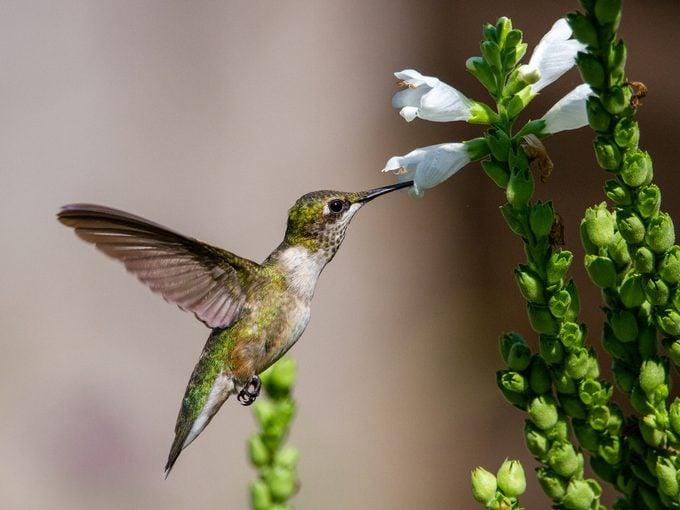
Obedient plant has a long bloom time, providing weeks of color in your garden through summer and fall. These native perennials are deer resistant, and the tube-shaped flowers will attract plenty of pollinators.
“During the summer of 2020, we planted a hummingbird and butterfly garden in the backyard to give us something to do and get us outside. We researched the plants we needed that would survive our zone and created a space that we could view and enjoy, from our sunroom and our backyard. A family of ruby-throated hummingbirds nested nearby and brought their young to our garden every day. They enjoyed the feeder, but apart from that, they especially loved the obedient plant (above). It blooms for the entire summer, giving the hummingbirds plenty to eat each day,” says Birds & Blooms reader Joshua Cotten.
“Obedient plant is one of my favorite late-summer plants. I love the color and height,” says Birds & Blooms reader Judy Ellis.
Check out the best perennials to grow for hummingbirds.
Backyard Tip
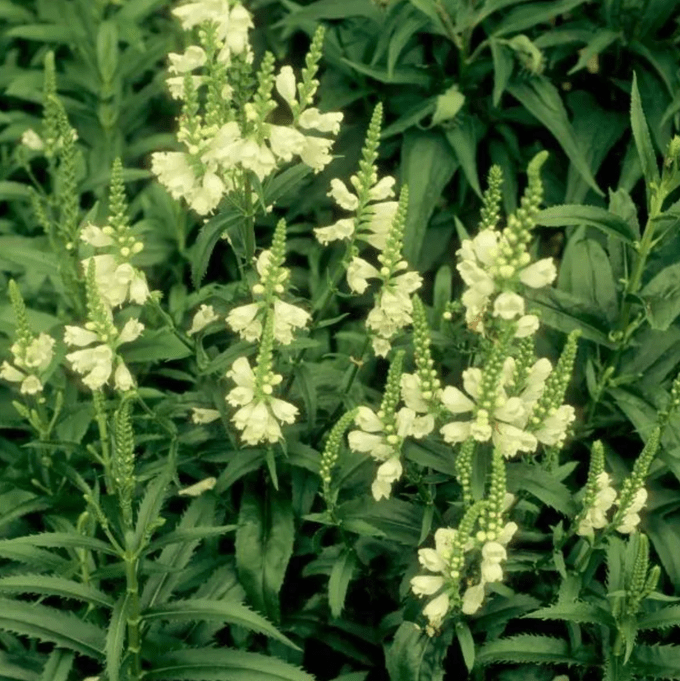
Try ‘Miss Manners‘ (Physostegia virginiana ‘Miss Manners’) if you are looking for a less aggressive option for small gardens.
If a plant is potentially aggressive, think about how it reproduces before choosing a strategy to keep it in check. For example, self-seeding flowers stay put with deadheading, while plants with runners are best grown in beds with solid borders.
